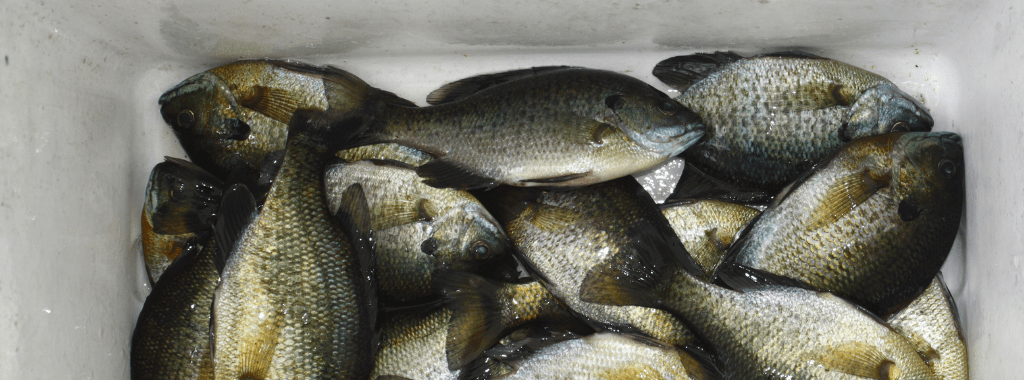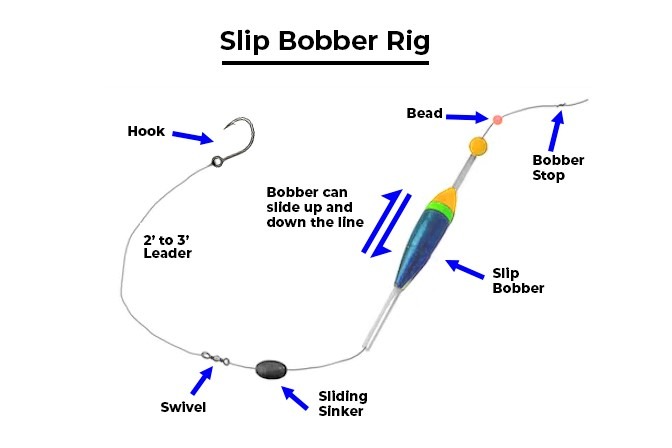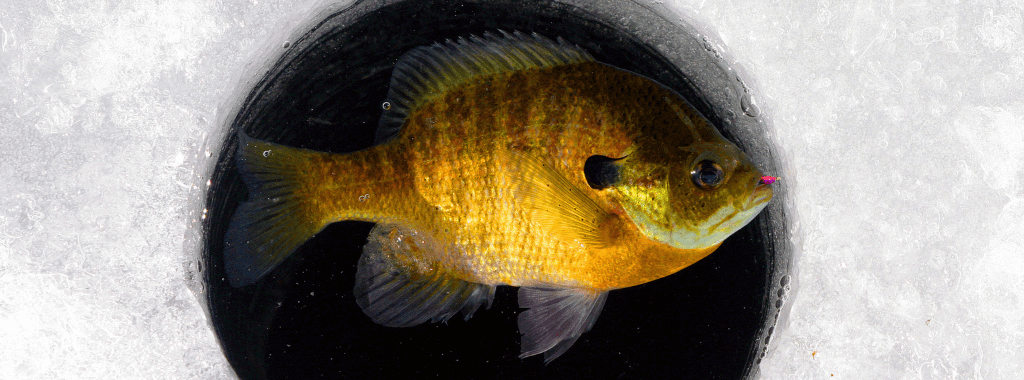Ever wondered if saltwater bluegill exist?
Bluegills are able to survive in muddy waters and are quite efficient at warding off predators. If they are that tough in freshwater, maybe they could survive in saltwater?
Perhaps you normally fish for bass, crappie, bluegill, and other freshwater fish. But occasionally you go saltwater fishing and were wondering if bluegill can live in saltwater?
Or maybe you had just never thought about whether there is such a thing as saltwater bluegill and simply want to know.
In any event, we will answer the question “Do Saltwater Bluegill Exist?” shortly so keep reading.
But first a bit of background about the tasty bluegill.
What Kind of Fish is a Bluegill?
Bluegills belong to a family of fish commonly referred to as sunfish, which also includes largemouth bass and crappie. The technical name of the bluegill species is Lepomis macrochirus. They also go by regional names like bream, copper nose, and blue sunfish. Some people refer to them as perch. However, that is technically incorrect even though bluegills and perch belong to the same family.
What Shape Are Bluegill?
Compared to many other species of fish, the bluegill is quite flat and round. Bluegills are also known as panfish. This is because many bluegill fishermen will throw them into a frying pan and fry them whole after removing the scales and ribcage.
How Big Are Bluegill?
Generally speaking, bluegills are on the small side as compared to other freshwater fish like catfish and bass. A typical bluegill measure about six to nine inches long and weighs less than a pound. However, the record weight for a bluegill is 4.8 pounds.

Are Bluegills Really Blue?
Just like their name implies, Bluegills are blue around the gill area, which includes the head and chin. Other parts of a bluegill typically display some type of vertical stripes and a yellow to bright orange breast. They can also be identified by a dark blue or black spot near the gills and dorsal fin.
What Do Bluegills Taste Like?
Bluegills have a delectable flavor that many people absolutely love. This is especially true when bluegills are pan fried. The frying process releases a pleasing aroma and taste. In order to get the desired taste, some aficionados will only fry them in a cast iron skillet.
Where Do Bluegill Live?
Bluegills are some of the most plentiful fish in the United States. They can be found in lakes and streams east of the Colorado Mountains from Canada to Mexico. The Ohio Valley area has an abundance of bluegills with Illinois being known as The Bluegill State.
How to Find Bluegill?
Bluegills are easiest to find during the spawning season when the water warms up to about 70- or 75-degrees Fahrenheit. This typically occurs between late spring and early summer. During that time, they build and defend their nests in shallow water. As summer water temperatures climb, bluegills tend to move to deeper waters. In the hottest part of summer, you will probably find them at depths of 10 feet or more.
What Do Bluegills Eat?
Bluegills are not finicky eaters. They will eat almost anything that they come across. This includes small insects, minnows, grasshoppers, crickets, and mealworms. This makes it fairly easy to find bluegill bait because bait shops usually carry most of those items.

How Do You Catch Bluegill?
Catching bluegills can be a lot of fun. Although they may be smaller than other fish, they put up a great fight. Pound for pound, many anglers will tell you that bluegills put up more of a fight than largemouth bass. Here are five basic steps for catching bluegills:
- Use a light rod and light line. Bluegills are relatively small and lightweight, and you may not be able to feel them bite if your tackle is too heavy. Also, a light line is harder for them to see.
- Use relatively small baits like you would expect a bluegill to feed on in nature. You can experiment with live bait or lures, but it’s best to keep the bait size under one inch long to make sure it will fit in a bluegill’s mouth. Although smaller bluegills seem to like crickets and worms, large bluegills may be more attracted to artificial lures. In cloudy or murky water, try throwing a spinner to catch their attention.
- Start with a bobber. Bobber fishing is a tried-and-true way of catching bluegills. It can be used in small streams where there is little room to cast an artificial lure. Bobber fishing is ideal for children. They get a real thrill when they see a big bluegill pull that bobber under the water. Use a small bobber, though, that will not require a lot of weight to pull it down.
- Try fly fishing. If you have room to cast, you can catch bluegills by fly fishing. You don’t have to worry about tying the right kind of fly because bluegills aren’t as finicky as trout. Just move your fly along slowly to give them plenty of time to go for it.
- Fish in secluded places. If you really want to catch large bluegills, avoid the most popular fishing spots and move to a secluded pond or small lake. While some popular lakes are full of bluegills, they tend to be of a smaller size. Fishing a small lake or pond, though, may net you a large bull.

Bluegills can be caught during any time of the year. However, they are easier to catch during mating season in late spring or early fall. During that time, male bluegills aggressively defend their nests and will bite at almost anything you send their way. Additionally, bluegills are easier to find during that time of year because you can spot their nests in shallow water. The nests often look like multiple elephant footprints.
To learn more about catching bluegill check out our other handy article: How to Catch Bluegill: Tips For Bluegill Fishing.
So Do Saltwater Bluegill Exist?
Bluegills are freshwater fish. They do not have the same chemical composition as saltwater fish. We will go into more detail later, but saltwater fish are made to intake saltwater and subsequently excrete it. However, freshwater fish, including bluegills, are not.
Can Bluegill Live in Saltwater?
That exact question is hard to answer because there are so many variables. For instance, how long are we talking about? What age are the bluegills? What is their normal habitat? How warm is the saltwater? In normal circumstances, though, the answer would be no because bluegills are freshwater fish. If bluegill were placed in a saltwater environment, the saltwater would cause the bluegill to become dehydrated to the point of death.
How Long Can a Bluegill Live in Saltwater?
The amount of time a bluegill can live in saltwater depends primarily on the salt content. For instance, bluegills are known to survive indefinitely in brackish water where freshwater streams and rivers flow into the ocean. If the amount of salt is low, bluegills can survive for quite a long time.

On the other hand, if the salt content is high, they can probably only survive for a few hours. The temperature of the water is also a critical factor. Bluegills would be able to last longer in cooler water because their metabolic rate would slow down.
What Kind of Fish Live in Saltwater on a Regular Basis?
Some species of fish like tuna and red snapper live in saltwater on a regular basis. They are able to drink the saltwater and excrete the salt through their gills and kidneys. This is because there is a higher concentration of salt in their bodies than in the surrounding water. Saltwater fish will not survive for long in freshwater because they will drink so much water that their body would become saturated with it.
Why Can’t Freshwater Fish Live in Saltwater?
Freshwater fish cannot live for long in saltwater because of the opposite reason. The salt concentration in the body of the fish would be much lower than in the surrounding water. Due to osmosis, the highly concentrated saltwater would draw the water out of the freshwater fish. This would cause the fish to become dehydrated to the point of death.
Final Thoughts
Yes, bluegills can survive in brackish water for an extended period of time and in true saltwater for a brief period of time. But there are no bluegills that are able to survive in saltwater for an extended period of time.
The question posed by this article was “Do Saltwater Bluegill Exist?” The answer to that question would have to be no.
While bluegills may be able to survive for a brief period of time in saltwater and a longer period of time in brackish water, they are not saltwater fish. Bluegills are strictly freshwater fish, and there is no such thing as saltwater bluegill.

